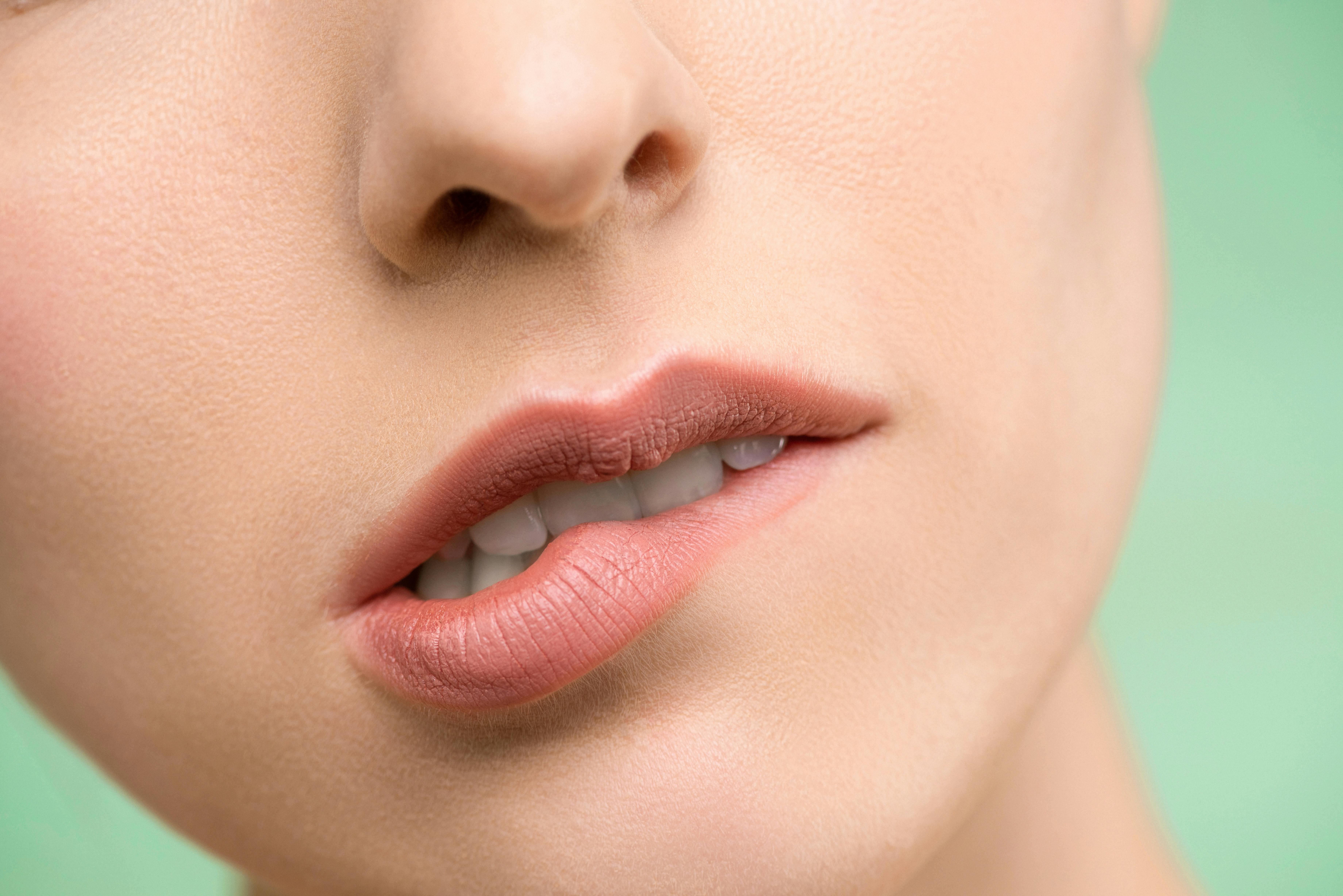Biting on ice cubes may seem like a harmless habit, but it can actually be very bad for your teeth. Ice is much harder than other food and beverages, and has the potential to cause serious damage to your teeth. In this article, we’ll discuss why biting ice is bad for your teeth and what you can do to protect them.Yes, biting ice is bad for your teeth. Ice is very hard and brittle which makes it easy to chip or crack your teeth when you bite into it. This can lead to pain, damage to the enamel of your teeth, and even increased sensitivity. Additionally, the cold temperature of the ice can also cause teeth to become sensitive and uncomfortable.
Types of Ice That Can Damage Your Teeth
Ice can be a refreshing and enjoyable snack on a hot summer day, but it can also pose serious risks to your dental health. Knowing which types of ice can damage your teeth is essential for avoiding costly and painful dental procedures. Here are some of the most common types of ice that can damage your teeth:
Hard Ice: Also known as “frozen water cubes” or “ice chips,” hard ice is the type of ice most often found in convenience stores and restaurants. Hard ice is made by freezing water at a very low temperature, which makes it extremely hard and brittle. Because it is so hard, it has been known to chip or crack teeth when consumed.
Soft Ice: Soft ice is often referred to as “slushy” or “slush-like” in texture. It is created by freezing water at a slightly warmer temperature than hard ice, making it less brittle and easier to chew. While soft ice may not be as likely to chip or crack teeth, it can still cause damage if consumed in large quantities.
Flavored Ice: Flavored ices are popular in many countries around the world. These ices are made from fruit juices or other sweeteners that have been frozen into cubes or slushy textures. Unfortunately, these sugary treats can be just as damaging to your teeth as regular hard or soft ices because sugar encourages plaque buildup on tooth enamel.
Shaved Ice: Shaved ice is made by shaving chunks of hardened ice into thin strips and then adding flavored syrup to make a delicious cold treat. While shaved ice may seem like an innocent snack, it can be dangerous because the shaved pieces are often small enough that they can get stuck between teeth, leading to bacteria buildup and decay.
Knowing which types of ices can damage your teeth is important for maintaining good oral health. Be sure to talk to your dentist about the best way to protect your teeth when consuming any type of cold treat.
The Dangers of Biting Ice
Biting ice can be a tasty and satisfying way to cool down on a hot summer day. However, it can also be dangerous and cause serious harm to our bodies. The act of biting into hard ice can put a strain on our teeth, leading to chips or cracks in the enamel. This can cause discomfort, pain, and even lead to more serious dental problems like cavities. Aside from the damage done to our teeth, biting ice can also cause the jaw muscles to become tense and sore. This strain on the jaw muscles can lead to long-term headaches, neck pain, and TMJ (temporomandibular joint) disorder.
As if that weren’t enough, biting ice also puts us at risk of lacerations or cuts in the mouth. These cuts may be minor at first but can quickly become infected if not properly treated. If left untreated, these infections could spread beyond the mouth and cause serious health problems that require medical attention.
Ultimately, while it may seem harmless at first glance, biting ice comes with a number of risks that should not be taken lightly. To avoid potential dental damage and other health issues associated with this habit, it is best to steer clear of biting ice altogether or only do so in moderation.
The Impact of Biting Ice on Your Teeth
Many people enjoy crunching on a piece of ice from time to time, but it can have an impact on your teeth. Biting into hard objects like ice can lead to dental trauma such as chipping or cracking a tooth, or even potentially fracturing your jaw. The coldness of the ice can also cause tooth sensitivity, which is when your teeth become overly sensitive to hot and cold temperatures.
Biting into hard foods or objects can also damage the enamel of your teeth. Enamel is the protective layer that covers your teeth and helps keep them healthy. When you bite into something hard, like ice, it puts pressure on the enamel, which can wear it away over time and lead to cavities.
Chewing on ice can also cause gum recession, which is when the gums start to pull away from the teeth due to irritation from chewing on hard objects. Gum recession makes your gums more vulnerable to bacteria, and can ultimately lead to gum disease.
It’s important that you take care of your teeth and avoid biting into hard objects like ice cubes if possible. If you experience any pain or sensitivity when chewing on something hard, stop immediately and speak with a dentist about any potential damage that may have been caused. Taking good care of your teeth will help ensure that they stay healthy for years to come.
How Biting Ice Affects Your Teeth
Biting ice can cause serious damage to your teeth, and it should be avoided at all costs. The cold temperatures in the ice can cause your teeth to become more sensitive and brittle, which can lead to cracks and chips. Additionally, the hard texture of the ice can cause enamel erosion, which is the thinning of your tooth’s outer layer. This makes your teeth more susceptible to cavities and other issues.
The risk of biting ice increases if you already have weakened enamel due to poor oral hygiene or genetic conditions. If you have any existing dental issues such as cavities or fillings, biting ice puts you at an even greater risk for further damage. It’s also important to note that there are different types of ice, such as dry or wet ice. Dry ice is much harder than wet ice and carries a greater risk of damaging your teeth if bitten.
If you find yourself biting on hard objects like ice, it’s important to talk with your dentist right away. They may recommend using a special mouthguard or dental appliance that will help protect your teeth from further damage. As always, make sure you’re properly caring for your teeth by brushing and flossing twice a day and visiting the dentist regularly for checkups and cleanings.

Potential Consequences of Biting Ice
Biting ice can lead to a number of potential consequences. The most immediate and obvious consequence is the risk of tooth damage caused by biting down on a hard object such as ice. This can cause chips, cracks, or even breakage in the teeth, leading to costly repairs. Additionally, there is an increased risk of dental nerve damage and subsequent pain from biting on ice.
In addition to tooth damage, there is also the risk of mouth injuries from biting on ice. The sharp edges of ice cubes can cause cuts or abrasions in the mouth and gums that can be painful and take time to heal. Furthermore, these cuts may also increase the risk of infection if not treated properly.
Finally, biting down on hard objects like ice can put added stress on the jaw joint (TMJ) and surrounding muscles and ligaments. This can lead to pain in the jaw area as well as headaches, earaches, and dizziness due to tension or misalignment in the jaw joint. If these symptoms persist for long periods of time it may require medical attention for proper diagnosis and treatment.
In conclusion, biting down on hard objects such as ice can have potentially serious consequences including dental nerve damage, mouth injuries, and problems with the TMJ joint. Therefore it is important to use caution when consuming items like ice cubes or other hard objects that could potentially cause harm to your teeth or other parts of your mouth.
1. Teeth Sensitivity
Biting ice can cause significant discomfort because of the extreme coldness. This can cause tooth sensitivity and pain in the teeth and gums. Not only that, but it can also cause gum recession, which can lead to further dental problems such as cavities, infections, and gum disease.
2. Chipping of Teeth
Biting ice can also lead to the chipping of your teeth. The hard surface and sharp edges of the ice cubes can chip away at your teeth, leading to serious dental problems such as gaps between teeth or even worse—needing a dental crown or bridge.
3. Digestive Issues
The extreme coldness of the ice cubes can lead to digestive issues such as nausea, stomach cramps, bloating and indigestion. Chewing on hard objects like ice cubes can also damage the esophagus and weaken your stomach’s natural defenses against harmful bacteria and viruses.
4. Dehydration
Chewing on ice cubes will result in a loss of fluids from your body since you’ll be swallowing melted water from the cubes instead of drinking it directly from a glass or bottle. This can lead to dehydration if you don’t replace those fluids with other liquids such as water or juice throughout the day.
5. Unhealthy Addictions
If you find yourself compulsively chewing on ice cubes despite knowing its potential dangers, this could be an indication that you have an unhealthy addiction to them and should seek professional help immediately to overcome it.
How To Protect Your Teeth From Biting Ice
Biting ice can be extremely detrimental to your teeth, leading to cracked or chipped enamel, damaged gum tissue, and even broken teeth. Fortunately, there are steps you can take to protect your teeth from the harmful effects of biting ice. Here are some tips for keeping your teeth safe:
1. Avoid biting down on any hard objects, including ice. If you must chew on something cold, break the ice into pieces small enough to swallow without chewing.
2. Drink plenty of water throughout the day. Staying hydrated can help reduce the cravings for crunchy foods like ice.
3. Use a straw when drinking cold beverages to keep them away from your teeth.
4. Quit smoking and other tobacco products, as these can increase your risk of tooth damage due to their acidic nature.
5. Visit your dentist regularly for checkups and cleanings to ensure that any problems with your teeth are caught early on before they become serious issues.
Following these simple steps can help protect your teeth from the dangers of biting ice and keep them healthy and strong for years to come!

Conclusion
Biting ice can be bad for your teeth, as it can cause sensitivity, enamel wear, and even fractures in the tooth. It is best avoided if possible. If you do choose to bite ice, be sure to use caution and avoid over-biting or using a lot of force when biting the ice. Be sure to brush and floss regularly in order to maintain good oral health. Finally, if you are experiencing sensitivity or enamel wear due to biting ice, be sure to see your dentist for an evaluation and treatment if necessary.
In summary, biting ice can be bad for your teeth and should be avoided whenever possible. If you must bite ice from time to time, use caution and visit your dentist regularly for checkups in order to ensure that your teeth remain healthy.
